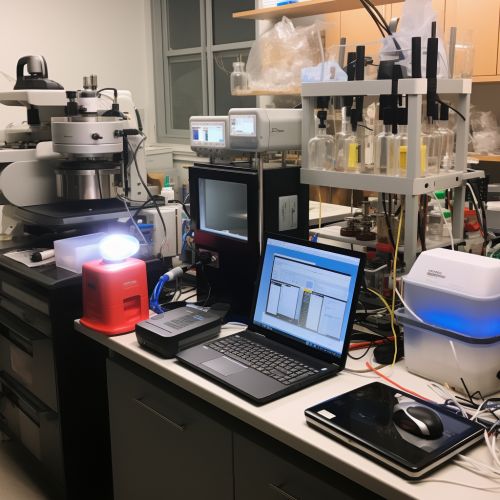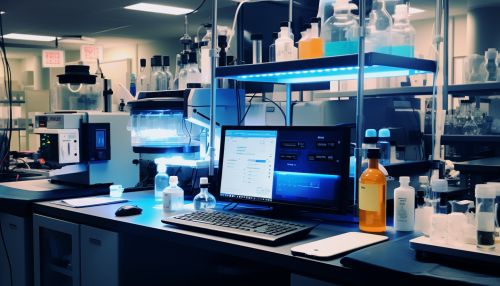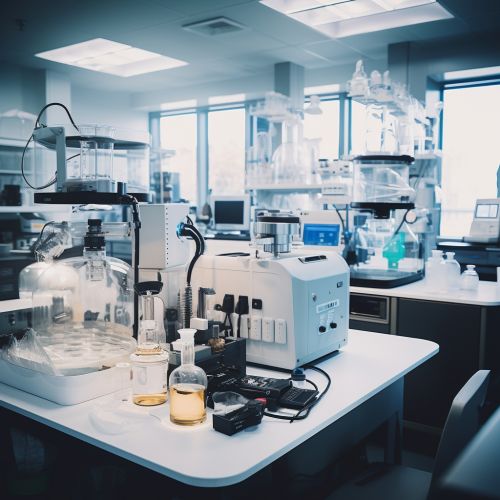The Role of Metabolomics in Personalized Medicine
Introduction
Metabolomics is a rapidly evolving field of study that focuses on the comprehensive analysis of small molecules or metabolites in biological samples. It provides a snapshot of the physiological state of an organism and has found extensive applications in various sectors, including personalized medicine.


Metabolomics and Personalized Medicine
Personalized medicine is an emerging practice that uses an individual's genetic profile to guide decisions made in regard to the prevention, diagnosis, and treatment of disease. Metabolomics, with its ability to provide a detailed analysis of an individual's metabolic profile, plays a crucial role in the realization of personalized medicine.
Metabolomic Profiling
Metabolomic profiling involves the identification and quantification of the metabolome of a given biological sample. This can be achieved through various analytical techniques such as mass spectrometry (MS) and nuclear magnetic resonance (NMR) spectroscopy. These techniques allow for the detection and quantification of a wide range of metabolites, providing a comprehensive view of the metabolic status of an individual.
Metabolomic Data Analysis
The analysis of metabolomic data is a complex process that involves several steps, including data preprocessing, statistical analysis, and metabolite identification. Various bioinformatics tools and software are available to facilitate this process. The ultimate goal of metabolomic data analysis is to identify significant metabolites that can be used as biomarkers for disease diagnosis, prognosis, or treatment response.
Metabolomics in Disease Diagnosis and Prognosis
Metabolomics has shown great potential in the field of disease diagnosis and prognosis. By analyzing the metabolome of an individual, it is possible to identify specific metabolic signatures associated with various diseases, including cancer, cardiovascular disease, and neurodegenerative diseases.
Cancer
In the field of oncology, metabolomics has been used to identify potential biomarkers for various types of cancer. For instance, specific metabolic signatures have been associated with breast cancer, prostate cancer, and lung cancer. These metabolic signatures can be used for early detection of cancer, monitoring disease progression, and predicting treatment response.
Cardiovascular Disease
Metabolomics has also shown promise in the diagnosis and prognosis of cardiovascular disease. Specific metabolic profiles have been associated with conditions such as coronary artery disease, heart failure, and hypertension. These metabolic profiles can be used to identify individuals at risk of developing cardiovascular disease and to monitor disease progression.
Neurodegenerative Diseases
Metabolomics can also be used in the diagnosis and prognosis of neurodegenerative diseases. Specific metabolic profiles have been associated with conditions such as Alzheimer's disease, Parkinson's disease, and amyotrophic lateral sclerosis. These metabolic profiles can be used to identify individuals at risk of developing neurodegenerative diseases and to monitor disease progression.
Metabolomics in Drug Discovery and Development
Metabolomics can also play a crucial role in drug discovery and development. By analyzing the metabolome of an individual, it is possible to identify potential drug targets, predict drug response, and monitor drug toxicity.


Drug Targets
By providing a comprehensive view of the metabolic status of an individual, metabolomics can help identify potential drug targets. This can be achieved by identifying metabolic pathways that are altered in disease conditions. These altered pathways can then be targeted for drug development.
Drug Response
Metabolomics can also be used to predict drug response. By analyzing the metabolome of an individual before and after drug treatment, it is possible to identify metabolic changes associated with drug response. This can help in the development of personalized treatment plans.
Drug Toxicity
Metabolomics can also be used to monitor drug toxicity. By analyzing the metabolome of an individual during drug treatment, it is possible to identify metabolic changes associated with drug toxicity. This can help in the early detection of drug-induced side effects and in the adjustment of drug dosage.
Conclusion
Metabolomics, with its ability to provide a comprehensive view of the metabolic status of an individual, plays a crucial role in personalized medicine. It has the potential to revolutionize disease diagnosis, prognosis, drug discovery, and development, paving the way for a more personalized and effective healthcare system.
